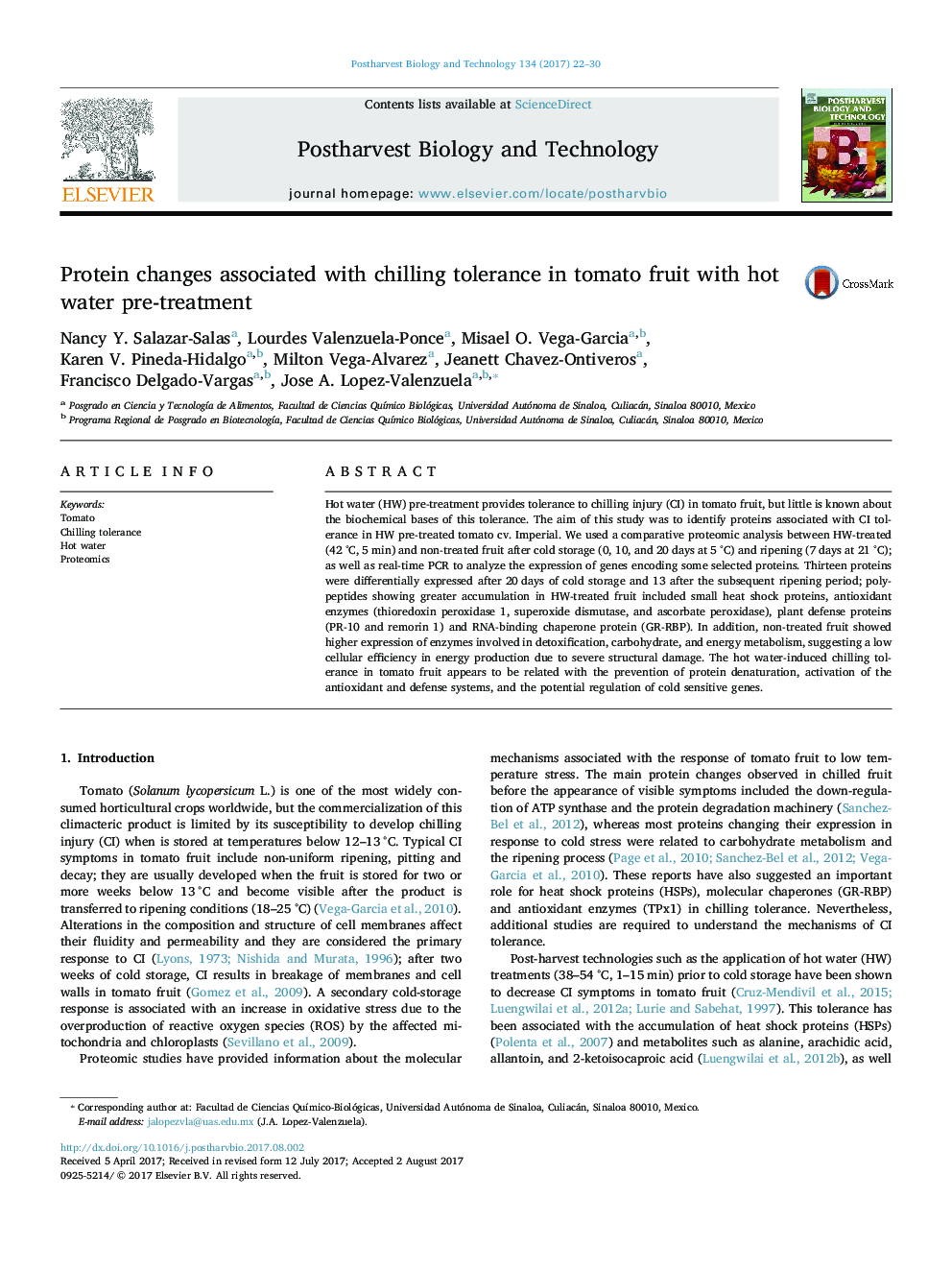| Article ID | Journal | Published Year | Pages | File Type |
|---|---|---|---|---|
| 5762606 | Postharvest Biology and Technology | 2017 | 9 Pages |
Abstract
Hot water (HW) pre-treatment provides tolerance to chilling injury (CI) in tomato fruit, but little is known about the biochemical bases of this tolerance. The aim of this study was to identify proteins associated with CI tolerance in HW pre-treated tomato cv. Imperial. We used a comparative proteomic analysis between HW-treated (42 °C, 5 min) and non-treated fruit after cold storage (0, 10, and 20 days at 5 °C) and ripening (7 days at 21 °C); as well as real-time PCR to analyze the expression of genes encoding some selected proteins. Thirteen proteins were differentially expressed after 20 days of cold storage and 13 after the subsequent ripening period; polypeptides showing greater accumulation in HW-treated fruit included small heat shock proteins, antioxidant enzymes (thioredoxin peroxidase 1, superoxide dismutase, and ascorbate peroxidase), plant defense proteins (PR-10 and remorin 1) and RNA-binding chaperone protein (GR-RBP). In addition, non-treated fruit showed higher expression of enzymes involved in detoxification, carbohydrate, and energy metabolism, suggesting a low cellular efficiency in energy production due to severe structural damage. The hot water-induced chilling tolerance in tomato fruit appears to be related with the prevention of protein denaturation, activation of the antioxidant and defense systems, and the potential regulation of cold sensitive genes.
Related Topics
Life Sciences
Agricultural and Biological Sciences
Agronomy and Crop Science
Authors
Nancy Y. Salazar-Salas, Lourdes Valenzuela-Ponce, Misael O. Vega-Garcia, Karen V. Pineda-Hidalgo, Milton Vega-Alvarez, Jeanett Chavez-Ontiveros, Francisco Delgado-Vargas, Jose A. Lopez-Valenzuela,
